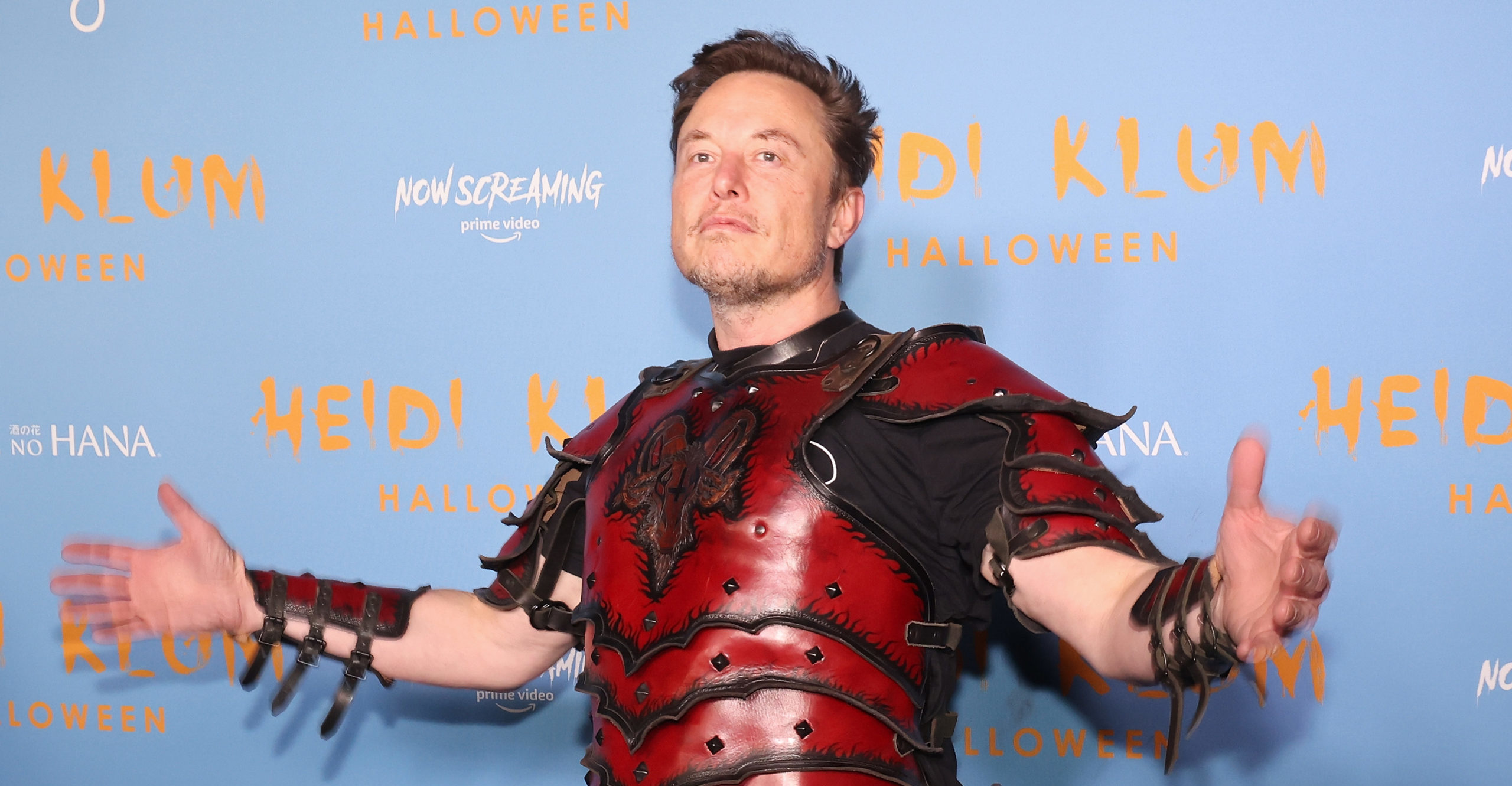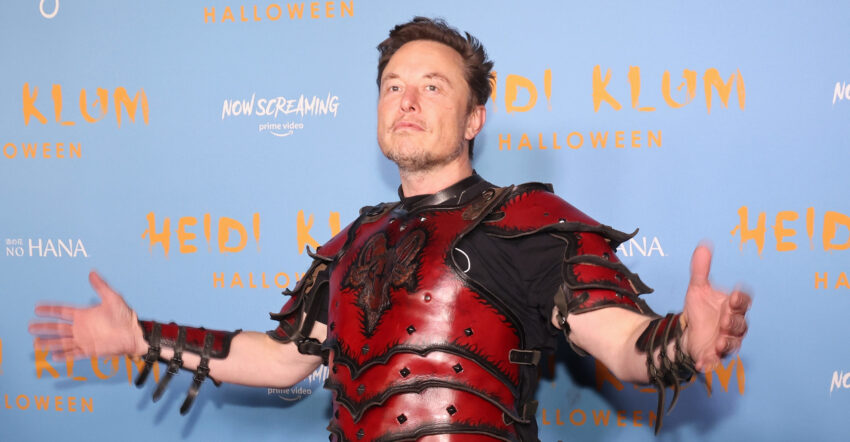Third-Party Rock Anthem
Even with the world’s richest man behind it, the “America Party” is unlikely to produce any political shuffling.

Smarting after his departure from the Trump administration and frustrated by the passage of the “One Big, Beautiful Bill,” which raises the debt ceiling by an unprecedented $5 trillion, Elon Musk has announced his new flight of fancy: founding a third party to break the Republican and Democrat duopoly in Washington.
Musk is far from the first person to believe the United States needs a third party to shake things up. American history has two rich and vivid centuries of third-party attempts, from the popular insurgent, to the astroturfed, to the rigidly ideological, to the downright clownish.
In fact, the “America Party” label is as unoriginal as it is bland. The first iteration was an outgrowth of the mid-19th century nativist movement, self-described “Native Americans” who worried that the mass immigration of Catholics from places like Ireland would overwhelm the English-descended founding stock of the United States and permanently alter the country—sound familiar?
The party, once organized, found instant success, electing a host of men to prominent governorships and even the speaker of the House, and by nominating a former president (who wasn’t even a nativist) they carried 21.5 percent of the popular vote in 1856. But just as quickly, they vanished from the turbulent politics of that decade.
Other “flash in the pan” parties have adopted the obvious “American” brand, but the most prominent of recent vintage was a breakaway of George Wallace’s American Independent Party of 1968. A split in 1976 created the American Party offshoot, composed of conservatives who wanted to move beyond race issues. They won 0.2 percent that year and faded into obscurity.
Unlike the equally boringly named Forward Party of Andrew Yang—who has been lobbying hard to gain Musk’s attention—it’s clear that the America Party of 2025 would have a real platform.
The priority would be to balance the budget and rein in overspending. The United States’ $37 trillion national debt is the most significant threat to American national security, but it’s not an issue that animates voters and actually engenders hostility when meaningful cuts are discussed.
Secondary to that fiscal discipline is unbridled support for technological development, including substantial investment in artificial intelligence and even replacing the fiat U.S. dollar with Bitcoin. On foreign policy, Musk was a moderating influence in the push for war with Iran, although he has also ceded ground when pressured by the Israel lobby.
The other core plank of the America Party platform would surely be expansion of legal immigration into the United States, including through the H1-B worker program, which Musk said in December he’d “go to war on this issue the likes of which [sic] you cannot possibly comprehend.” A beneficiary of an H1-B visa when he immigrated to the U.S. from South Africa (via Canada) in the mid-1990s, Musk further subscribed to the opinion that native-born Americans were mentally incapable of advancement in high-skilled areas.
That platform as described—fiscal conservatism, open immigration, overseas restraint—is already distinctly similar to the Libertarian Party, which, following a bitter power struggle between its own left and right wings, cratered its popular support last November to just 0.4 percent nationally. Their leadership has also been trying to court Musk.
The most obvious precedent for Musk’s proposed venture is Ross Perot, the technology billionaire who financed his own campaign for president in 1992 with a promise to balance the budget and get the numbers in order. But Perot’s oddball persona, with parodies drawing attention to his big ears, homespun quips, and high-pitch Texas twang, was endearing as a philanthropic and uniquely American figure. By contrast, Elon’s peculiarity makes him struggle for likability outside a devoted legion of (paid) reply-guys.
Further, Perot did not have the temperament for politics. What could have been a successful blitz to the Oval Office was stalled when he withdrew from the race in July, only to spontaneously enter again in October. At one time leading both George H.W. Bush and Bill Clinton in the polls, he finished with 19 percent but carried no states.
This is a personality flaw Elon shares. It’s mighty difficult to accuse the sitting president, who up until moments ago was your political ally, of being on Jeffrey Epstein’s client list (which we’re unbelievably being told is as mythological as Bigfoot) and then walk it back without further elaboration.
Socially handicapped and constitutionally ineligible to run himself, Musk will require others to be the face of the America Party. In 1936, “a grand coalition of malcontents”—the populist radio priest Charles Coughlin, the old-age pension advocate Francis Townsend, and the far-right demagogue Gerald L.K. Smith—combined forces and created the Union Party in an attempt to derail the reelection of Franklin Delano Roosevelt.
Each limited by their own shortcomings—Coughlin’s Canadian birth, Townsend’s frailty, and Smith’s insanity—they had to find a front-man whose name would actually appear on the top of the ticket. They settled on little-known North Dakota Rep. William Lemke, a disheveled and unremarkable “hayseed” whose poor speaking voice drew 2 percent of the vote that year.
Who could possibly be Elon Musk’s Lemke is anyone’s guess. But it’s sure to give voters a natural trepidation to supporting a political party knowing that whoever the candidate is will only be a cutout for a foreign-born billionaire whose alternative lifestyle garners its own headlines.
Waving away interest in the 2028 presidential horse race, Musk instead wants to concentrate on next year’s midterms. He’s smart enough to realize that despite being the world’s richest man, even his wealth is not large enough to single handedly elect 51 senators and 218 representatives. Instead, Musk believes that securing just two or three Senate seats and eight to 10 House districts will give him the balance of power.
“The way we’re going to crack the uniparty system is by using a variant of how Epaminondas shattered the myth of Spartan invincibility at Leuctra: Extremely concentrated force at a precise location on the battlefield,” he tweeted.
This is a strange strategy for success. There are already prominent people in Congress who care about the national debt, including Senator Rand Paul and Rep. Thomas Massie of Kentucky, who both opposed the “Big, Beautiful Bill.” But besides being correct, there’s not much they can do as individual members to prevent the other 533 members from voting to spend more money.
If a handful of individuals were somehow elected under the America Party banner, it’s unlikely they’d accomplish anything beyond providing Elon with full-time whips for his business subsidies.
Musk has pitched hosting an inaugural “America Party congress”—how would delegates be selected?—but as of this writing he has not registered such a party with the Federal Election Commission. In all likelihood, the America Party will just end up another meme.
On the other hand, Musk is not just a tease. He really did spend $44 billion to acquire Twitter and alter its speech regulation. And he did spend over $200 million to help elect Donald Trump last year. So the prospect of a new party cannot be wholly dismissed.
Trump, who once flirted with his own third-party run in 2000, commented this week that, “The System seems not designed for them.” Ironically, the only man with the je ne sais quoi to be elected as an independent is probably already living at 1600 Pennsylvania Avenue.
The post Third-Party Rock Anthem appeared first on The American Conservative.
Click this link for the original source of this article.
Author: Hunter DeRensis
This content is courtesy of, and owned and copyrighted by, http://www.theamericanconservative.com and its author. This content is made available by use of the public RSS feed offered by the host site and is used for educational purposes only. If you are the author or represent the host site and would like this content removed now and in the future, please contact USSANews.com using the email address in the Contact page found in the website menu.








